AITA for telling my wife to stop acting out infront of my mom?
In the fragile aftermath of welcoming new life, a family struggles beneath the surface of joy and exhaustion.
What should be moments of shared love and support instead twist into silent tensions and unspoken resentments, revealing the raw edges of vulnerability that come with sleepless nights and overwhelming change.
Caught between the roles of mother, wife, and daughter, the husband watches helplessly as his wife’s frustration clashes with his mother’s intentions, igniting painful confrontations that threaten to unravel the fragile bonds meant to hold them together.
In this delicate dance of care and control, emotions run deep, exposing the heartache that often hides behind smiles and whispered apologies.

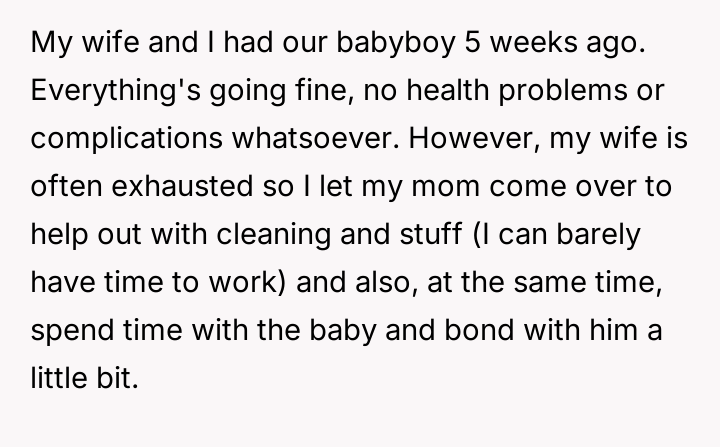
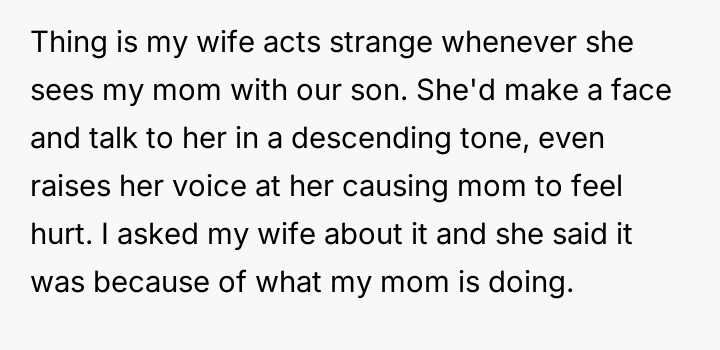
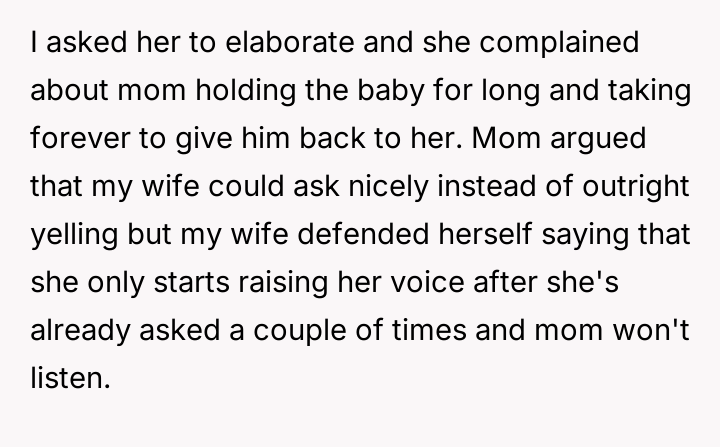
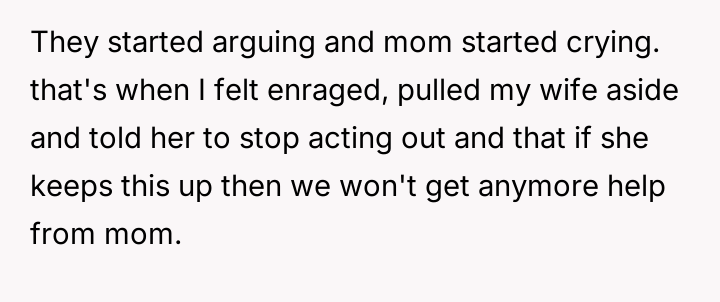
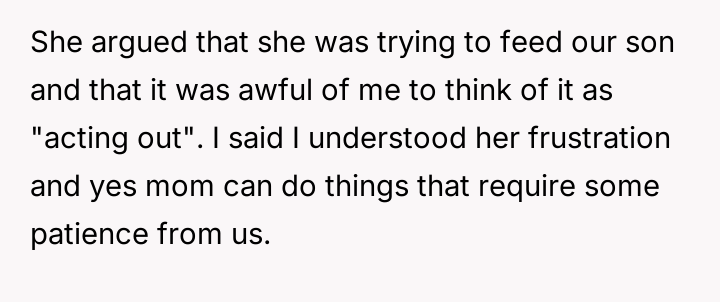
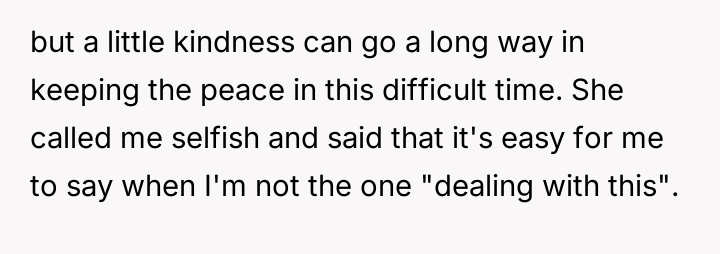

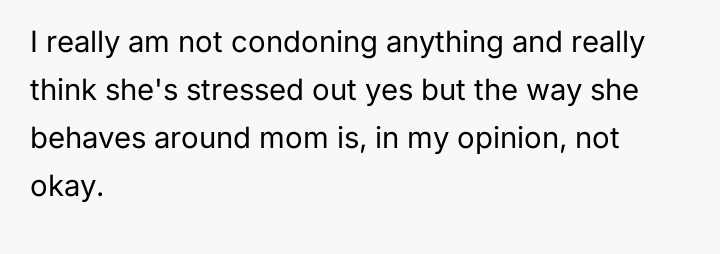
Subscribe to Our Newsletter
No spam, unsubscribe anytime. Privacy Policy
A Wave of Opinions Just Hit the Thread:
The thread exploded with reactions. Whether agreeing or disagreeing, everyone had something to say — and they said it loud.

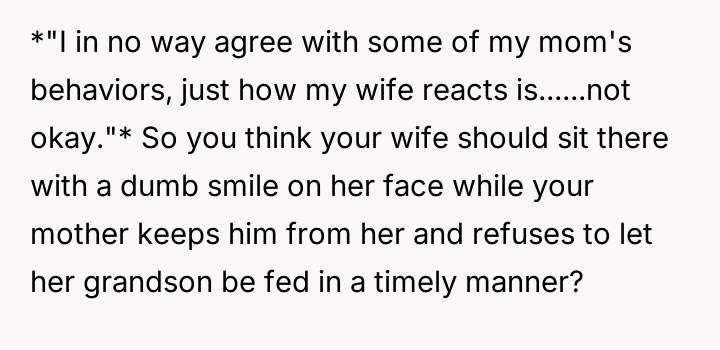
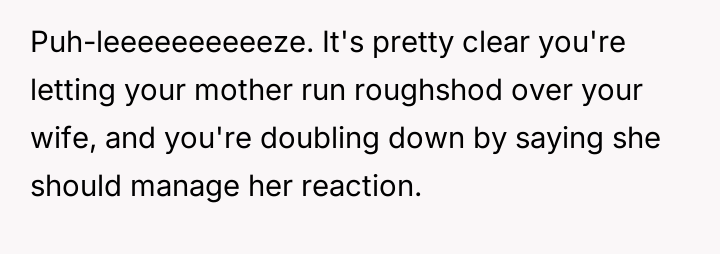
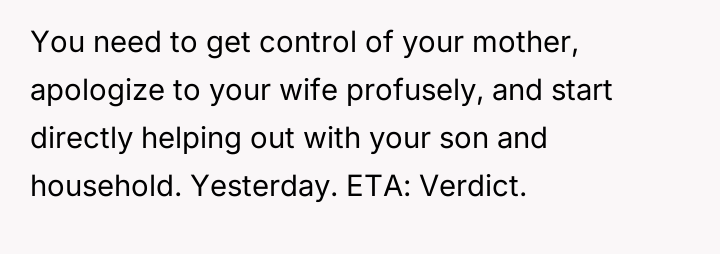
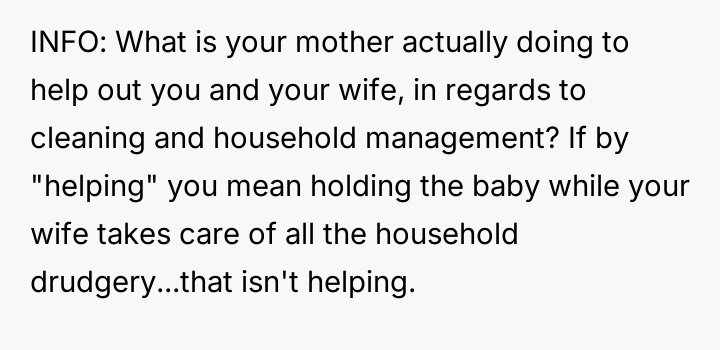
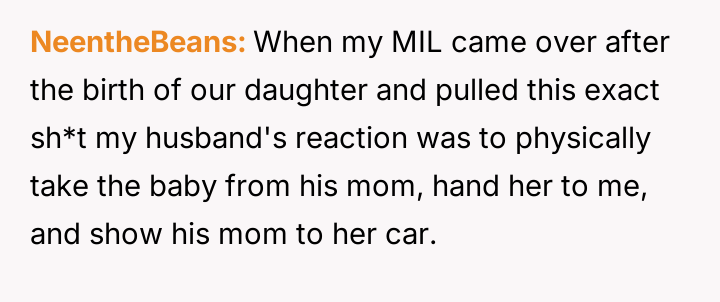
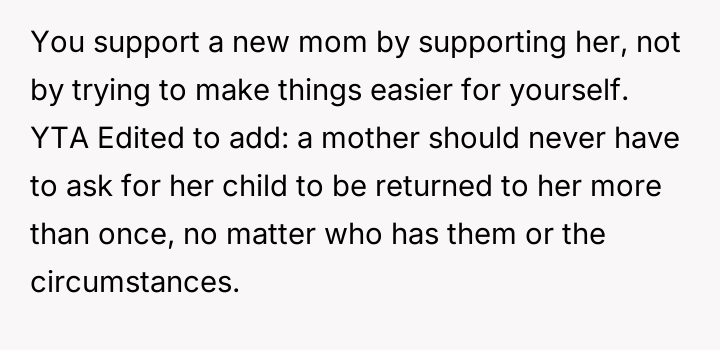
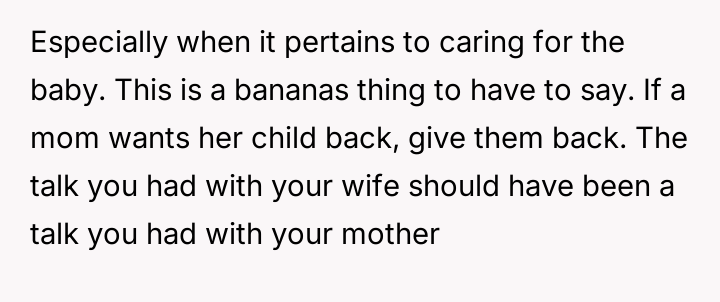
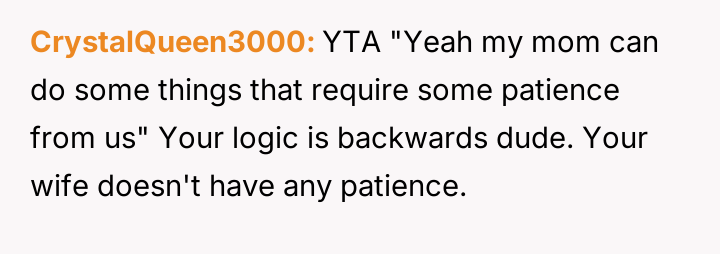
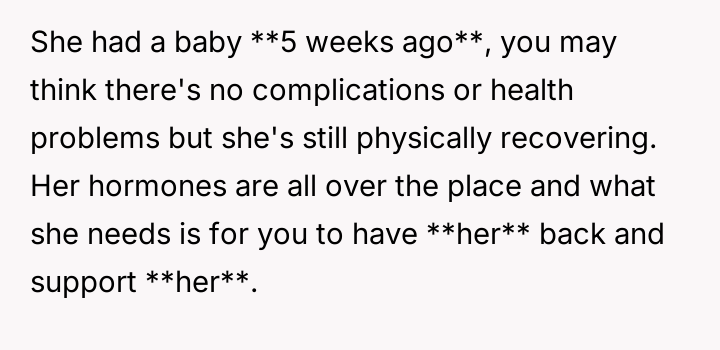
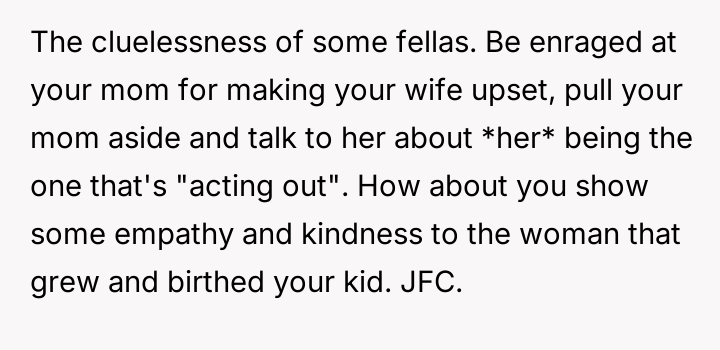
YTA.
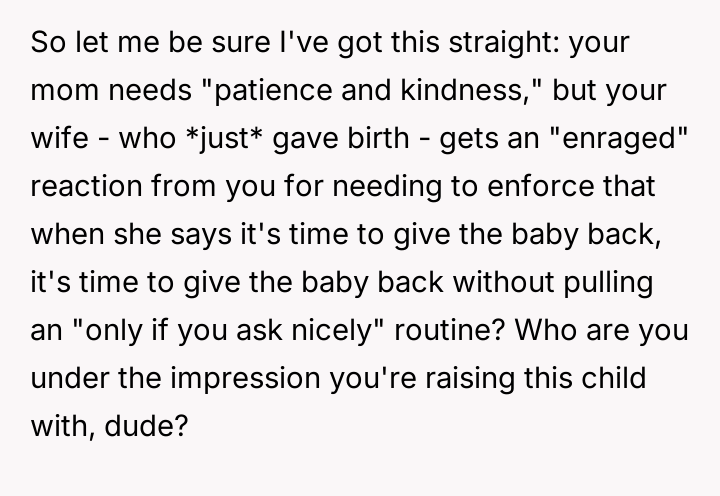
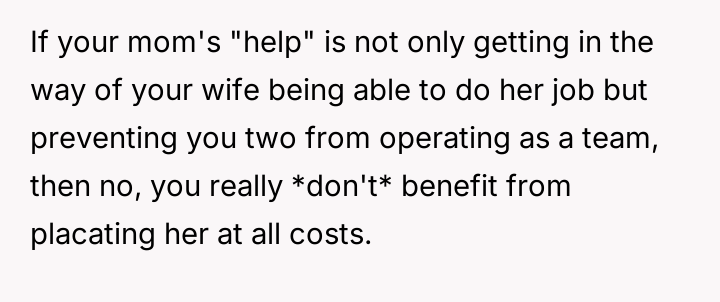

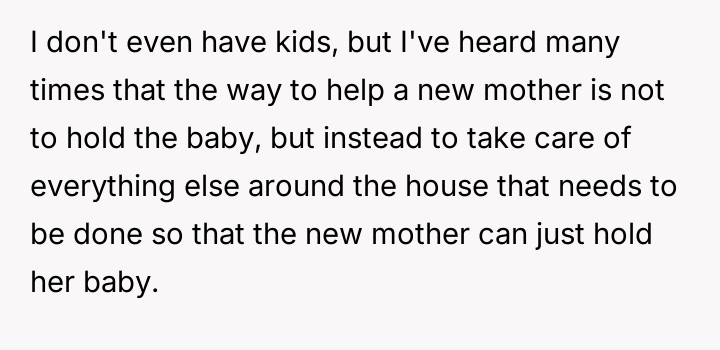
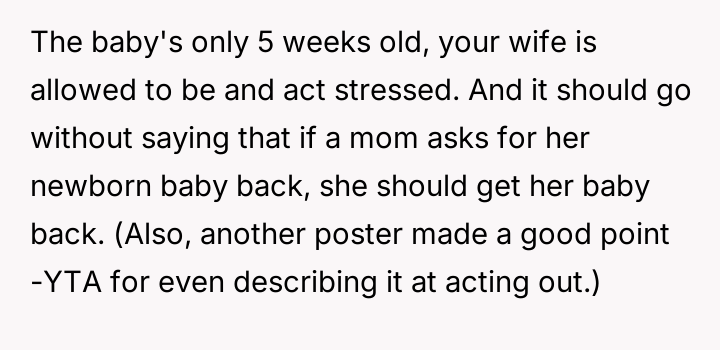
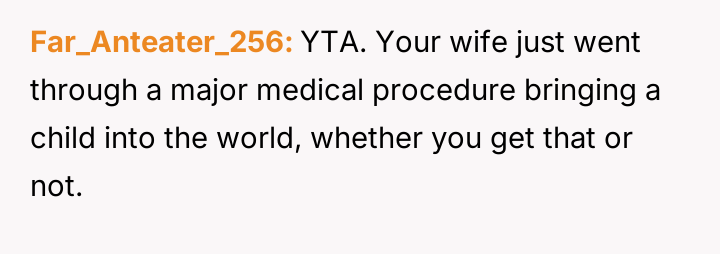
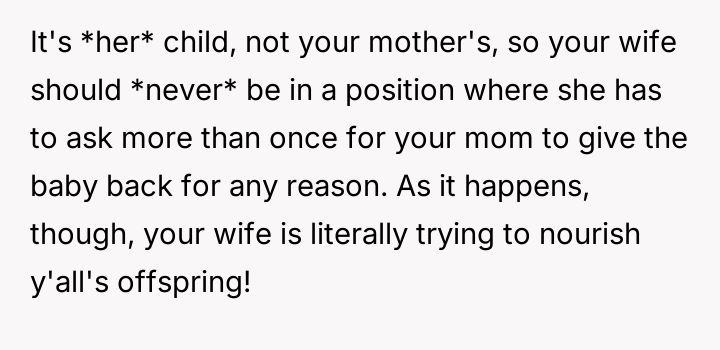
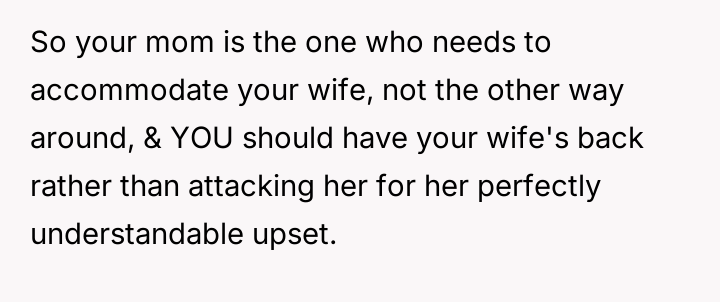
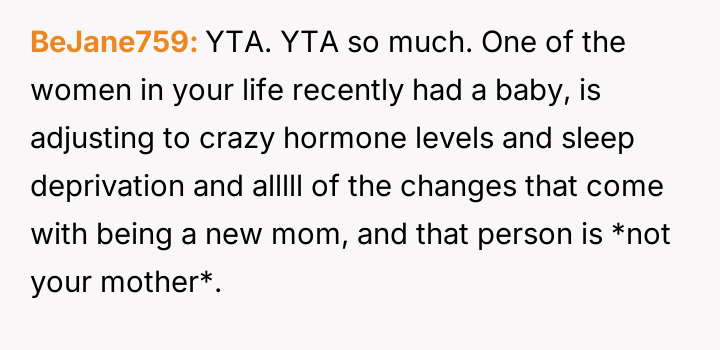
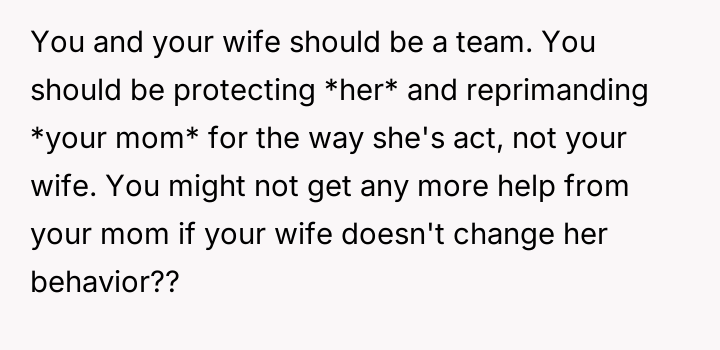


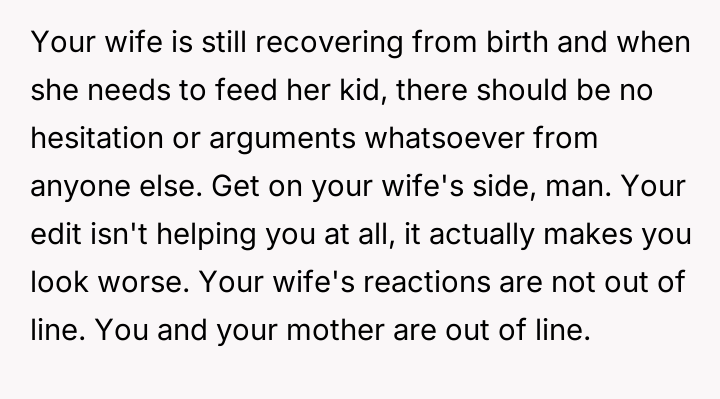
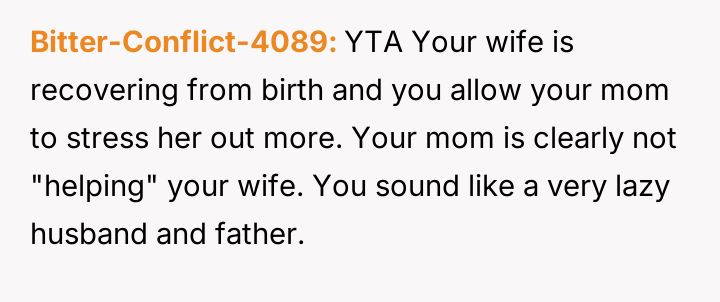


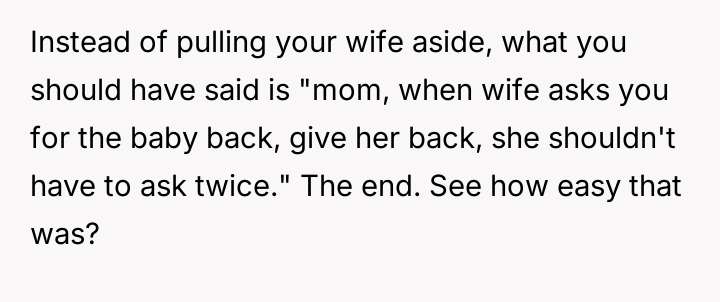
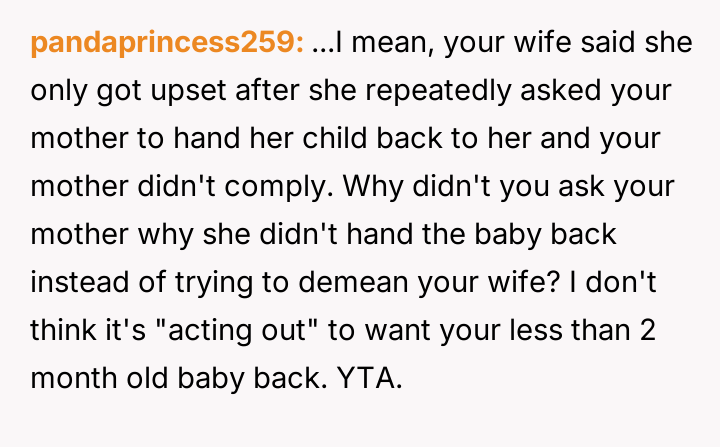
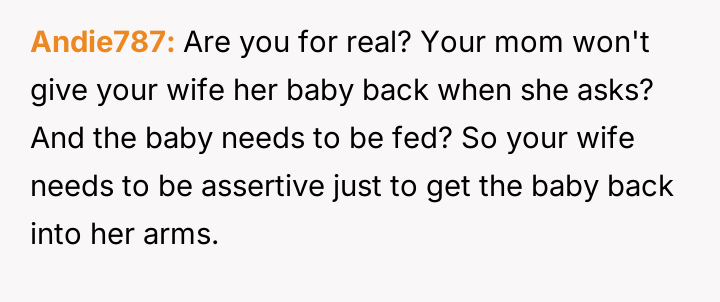

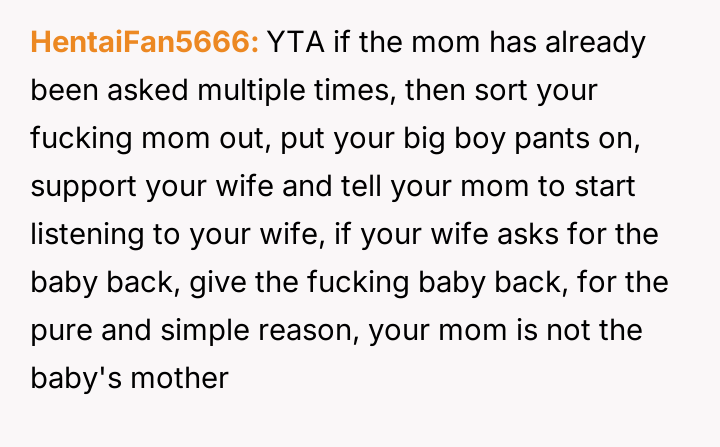
The original poster (OP) is caught between supporting his exhausted wife and appreciating the necessary help provided by his mother.
The central conflict revolves around the wife's perceived hostile reaction to the mother's prolonged holding of the baby, contrasted with the OP's belief that his wife's behavior is an unacceptable way to handle stress, leading to a significant escalation and emotional fallout between the couple.
Given the high stress of new parenthood, is the wife's reaction an understandable expression of protecting her maternal role and needs, or is the OP correct that her confrontational behavior towards the helper—the mother—is fundamentally damaging to the family dynamic and support system?

